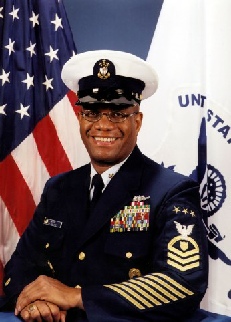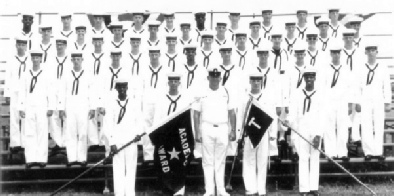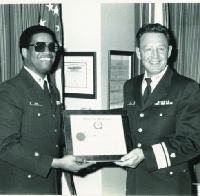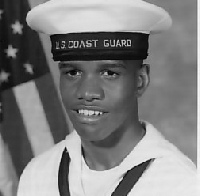
 Register Subscribe
Register Subscribe 
Web Site Design By Kellie Gunderman, CASY-
TM
Translating Communications Skill Sets & Education in the Military
Interview with Vince Patton, Retired U.S. Coast Guard
Interview and Story by Kellie Gunderman, Assistant Editor MSEJ
 If you had met Vince Patton as a child, he would have almost certainly been wearing a Sailor’s hat that his brother had given him as a gift. For years, Vince followed in his big brother's footsteps and when his role model chose to join the Navy, Vince made a decision on his own future. He was so set on his choice for so many years that his parents chose to sign him into the Delayed Entry Program as a birthday gift during his senior year of high school. However, as fate would have it, Vince was destined to walk into the wrong recruiting office that day; it was an accident that would change his life. When he finally realized he was standing in the recruiting office of the Coast Guard, it was too late. He was inspired. The photos on the walls captivated him so much that he never made it across the hall to the Navy’s office. On that day, he enlisted in the Coast Guard, and envisioned his time in the military as a stepping stone towards a GI Bill that would allow him to pursue a college degree.
If you had met Vince Patton as a child, he would have almost certainly been wearing a Sailor’s hat that his brother had given him as a gift. For years, Vince followed in his big brother's footsteps and when his role model chose to join the Navy, Vince made a decision on his own future. He was so set on his choice for so many years that his parents chose to sign him into the Delayed Entry Program as a birthday gift during his senior year of high school. However, as fate would have it, Vince was destined to walk into the wrong recruiting office that day; it was an accident that would change his life. When he finally realized he was standing in the recruiting office of the Coast Guard, it was too late. He was inspired. The photos on the walls captivated him so much that he never made it across the hall to the Navy’s office. On that day, he enlisted in the Coast Guard, and envisioned his time in the military as a stepping stone towards a GI Bill that would allow him to pursue a college degree.
Flash forward, Vince Patton became the 8th Master Chief Petty Officer of the Coast Guard. As the principal advisor to the Commandant of the Coast Guard, his primary focus was on quality of life issues, career development, work environment and personnel matters affecting over 36,000 active duty and reserve enlisted personnel. Following his retirement in 2002, after thirty years of active duty service, Dr. Patton continued serving the military community through numerous organizations and programs including the Department of Defense Equal Opportunity Management Institute, Veterans United, the Coast Guard Academy Board of Trustees, the Coast Guard Retirement Council and the Coast Guard Mutual Assistance Board of Control.
Dr. Patton's first assignment in the US Coast Guard was as a Radioman. His advice to military members, currently working in communications, is to be aware of how the equipment you are using can translate into a civilian job. “Communications are the same in the military and outside of it; the same radios, the same computers, the same software.” Dr. Patton remembers working with radios in the Coast Guard and only referring to them by number and never taking notice of who made them. This is an extremely common practice in the military, and an unfortunate one. Take for instance a Communications Sergeant in the Army who spends many years referring to his radio as the XTS3000, completely overlooking the fact that this radio is made by Motorola. With an extensive knowledge base of the XTS3000, that same Communications Sergeant would have a good chance of obtaining employment with Motorola or a company that uses their equipment.
Additionally, another way of preparing yourself for employment outside of the military is to obtain an education from within. All of Dr. Patton's education was earned while on active duty, including his Doctorate of Education degree from American University. When asked what he would say to Active Duty members who have chosen not to pursue a free education during their time in the military because they “do not have the time,” Dr. Patton spoke of his afloat tour and how he began taking classes. “Other men I was serving with began taking courses so I did, too.” He continued by joking, “You can only watch The Godfather so many times.” Also, modern technology offers education in a much more convenient manner than when Dr. Patton was receiving his coursework via mail. He admits that there are times in a military career when completing courses is difficult, but with the military offering so many education incentives, including access to online classes, there is no excuse to not obtain at least a Bachelor’s degree during a long-
Dr. Patton's education, experience in communications, and understanding of career development has led him to his current and notable positions of Vice President for Homeland Security Programs with AFCEA International. Recently, AFCEA participated in National Cyber Security Awareness Month in October.
For Dr. Patton's advice on how employees can protect themselves online and in the companies they work for, visit the Military Service Employment Journal next month for Part 2 of Vince Patton's interview.



